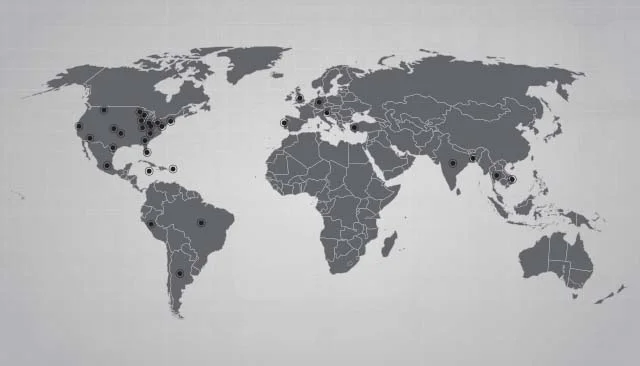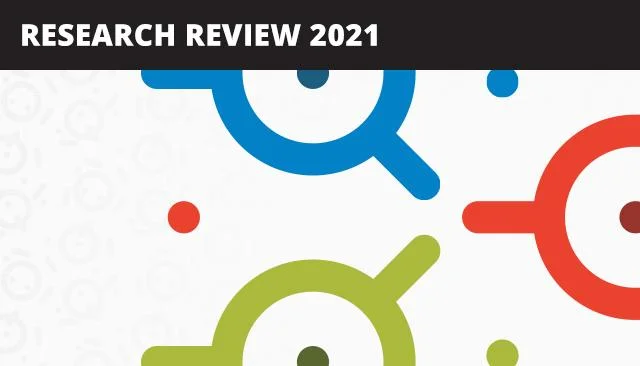Educators Meet to Share the Latest in Software Engineering

• Article
September 7, 2021—The SEI held the Software Engineering Workshop for Educators from August 3-5. The annual event gathers college-level software engineering educators to exchange ideas from their field. This year’s virtual workshop brought together a record 75 educators from 16 countries to learn about software engineering for artificial intelligence (SE4AI), artificial intelligence for software engineering (AI4SE), and blockchain.
SEI director and chief executive officer Paul Nielsen opened the first day of the workshop. Ipek Ozkaya, the SEI’s technical director of Engineering Intelligent Software Systems, then introduced participants to AI engineering, the emergent discipline focused on developing tools, systems, and processes to enable the application of artificial intelligence in real-world contexts.
Ozkaya and James Ivers, an SEI principal engineer, led a training on AI4SE, or how to apply AI to improve software development efficiency. They summarized the SEI’s research in this area, especially search-based refactoring.
Grace Lewis gave a training on SE4AI. Lewis is one of the workshop’s co-facilitators, the lead of the SEI’s Tactical and AI-Enabled Systems initiative, and an SEI principal researcher. Participants learned how disciplined software engineering practices, such as early and continuous incorporation of design and architecture approaches, can help AI-enabled systems meet business goals and required capabilities. Lewis also reviewed the outcomes of an SEI study on characterizing and detecting mismatch in machine-learning systems.
Workshop participant Sajjan Shiva, of the University of Memphis, said he would use the references given during the SE4AI training as source material for a planned graduate course on the subject. “It was nice to see the distinction between SE4AI and AI4SE,” he said. “I plan to touch upon both concepts in my course.”
The workshop’s second day consisted of training on designing and developing blockchain applications, led by Ingo Weber, chair of software and business engineering at Technische Universität Berlin. The training centered around the impact on software architecture and engineering practices of using blockchain as a general computing platform.
The University of North Georgia’s Jason Porter found the second day’s training particularly useful. “I have been planning to create a blockchain course at my institution, and this workshop provided me with all the tools needed to get started,” he said.
Day three of the workshop focused on the post-COVID classroom. The educator-led sessions and breakout groups covered topics such as incorporating online experiences, student evaluations, hybrid teaching models, and the impact of technology on student diversity.
Returning workshop participant Paula Morais, of the Universidade Portucalense, echoed the sentiments of many attendees regarding the discussions of pedagogy. “Although there are participants from very different institutions, from different countries with very different cultures, it was interesting to see that the problems we felt here in Portugal this last year are the same ones that all colleagues shared,” she said.
“While it was clear that many of the educators really want to get back to the classroom,” said workshop co-organizer Lewis, “they also reflected on strategies to deal with remote students that they want to continue. Some stated that their universities want to continue to offer classes in hybrid mode to reach students who cannot attend classes in person, whether due to physical distance, financial situation, or disabilities. COVID-19 has really taught a lot about education, but also about ourselves.”
From 2011 through 2019, workshop participants would spend the third day exchanging physical artifacts. Though the virtual format of the 2021 workshop disrupted this practice, participants still found the outcomes of the educator-led interactive sessions immediately useful. “I forwarded to my department the results of one of the surveys taken that day,” said Steve Chenoweth, of the Rose-Hulman Institute of Technology, who was part of a breakout group on hybrid classrooms.
Other participants expressed appreciation of the workshop’s fellowship. “It gets lonely being the only person that teaches software engineering on my campus,” said Rachelle Hippler, of Baldwin Wallace University. “The workshop provides that much-needed community to share teaching ideas.” Some of these connections represent potential research collaborations.
“I have attended the SEI Educators Workshop for 12 years,” said participant Humberto Cervantes, of Universidad Autónoma Metropolitana. “Over these years, the workshop has allowed me to learn many new things and to share numerous teaching experiences with colleagues from around the world. This has had a very positive impact on my teaching and research.”
“The workshop creates a community,” said Robert Nord, a senior member of the SEI technical staff and one of the workshop’s organizers. “That sense of community and the interactive nature of the event were sustained in a virtual environment and enriched with the higher number of attendees.”
This year’s record attendance of 75 has workshop organizers considering a hybrid format for next year’s event, even if conditions allow for all in-person participation. The 2020 workshop, which was the first to be held virtually due to the COVID-19 crisis, held the previous record at 47 participants.
The SEI has hosted the Software Engineering Workshop for Educators each year since 2004 as part of the institute’s mission to transition its expertise and support science, technology, engineering, and mathematics (STEM) education.
Learn more about the Software Engineering Workshop for Educators on our website.

